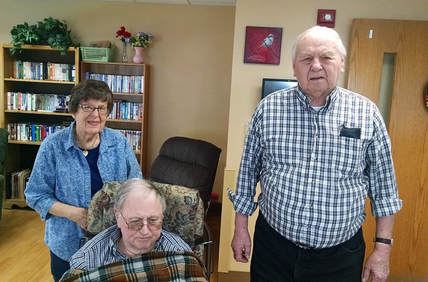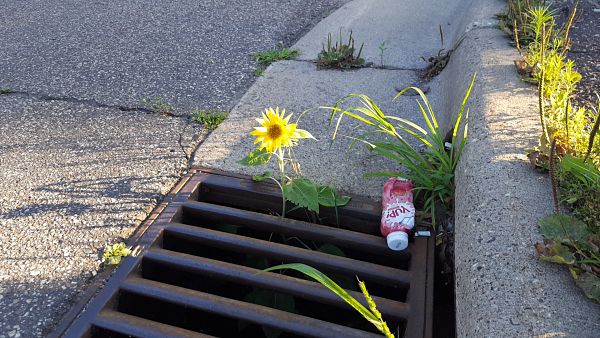|
Sometimes it’s good to be reminded that we do have an impact on other people, whether we realize it or not. My dad, who has Alzheimer’s, moved into a nursing home in February 2015. It was a transition my family both dreaded and anticipated. Would he be all right without my mom’s constant, patient presence? Would he get along with the staff and other residents? It was sort of like sending a kid off to college—except, of course, that young people leave in order to create their lives. Old people leave in order to gently finish theirs.  The first couple of months were rough, but eventually we settled into a new routine. That routine included my dad’s roommate, Harry. Harry wasn’t a typical resident in the memory care unit. He was fully mobile. He could still read. He could carry on a conversation so well that you’d wonder why he was there—until he let it slip that he would be driving his truck back to the Twin Cities later that night. Harry seemed like a guy you’d find telling jokes to the gang over morning coffee at a small-town café, or maybe over beers at a local bar: blunt and a little gruff, but with a twinkle never too far from his eyes. One day Mom and I were in Dad’s room, talking to Harry about his long career as a trucker and farmer. Dad piped up, “I haven’t grown up yet!” To which, quick as wink, Harry replied, “I’m sorry to tell you this, but you won’t make it.” My mom, especially, enjoyed Harry’s company. On my dad’s sleepy or uncommunicative days, Harry would make her visit more interesting. He spoke Low German, as my parents did. Low German (“Plattdeutsch”) is a funny, expressive language. I had no idea what their bantering meant, but it was clearly a treat for both of them. More than a year went by. Then one day Harry was gone. Just gone. He’d died in his sleep. Mom and I went to his funeral. The service, at a local funeral home, was well attended by extended family, but it didn’t seem like anyone had a particular connection to him. But Mom and I went to pay tribute to Harry because, no matter what the story of his past life, he’d added humor and grace to a poignant period in our lives. He had become part of our story. A couple of years ago I gave a spontaneous hug to someone I didn’t know well, someone who was dealing with an intense, ongoing family crisis. It was a parent-to-parent moment, a “there but for the grace of God go I” moment. Recently this person made a point of seeking me out and telling me that my impulsive hug had marked a turning point for him. He’d been in despair, looking for a sign that life wasn’t as bleak as it seemed. And then I showed up. I was the sign. I was the sign even though, at the time, I was probably at the lowest point in my life. Divorce. Struggling kids. Career disappointments. The sense that I’d failed miserably at everything I’d ever cared about. I was utterly broken—and yet my brokenness didn’t matter. In spite of it, I had become part of someone else’s story. This week marks the beginning of another year of service in Reading Corps. At training today, my program manager shared an essay by Rachel Naomi Remen. The essay explored the differences between helping, fixing, and serving. As I came to these lines, I teared up a little:
So, yes, a crusty 92-year-old with dementia can become the bright spot in our day, and a middle-aged woman scraping along at the bottom of life can provide a foothold for someone who needs just that.
Whenever we share of ourselves authentically and without reservation, we are serving. We are whole.
1 Comment
Linda
10/27/2017 04:54:52 pm
Beautiful Nancy
Reply
Leave a Reply. |
Nancy Loewenis a children's book author, editor, tutor, mom of two adult children and one feisty cat, and collector of weird things. Featured Posts
My Reading Corps Service
Letters for Kids Double Rainbow A Blue Ribbon Day A Kind Neighbor, a Beaded Tree
Categories
All
Archives
December 2023
|



 RSS Feed
RSS Feed